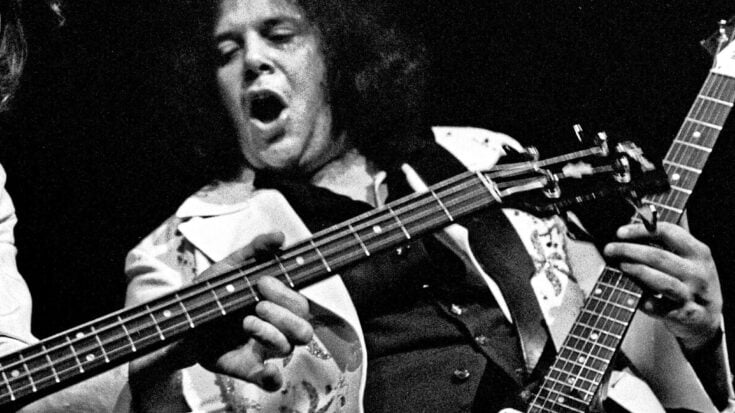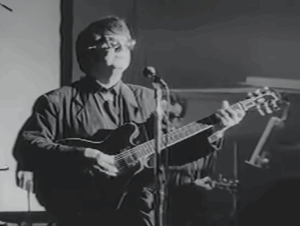10 Classic Rock One-Hit Wonders You’ll Remember And What Became of Each Artist

Photo by Heinrich Klaffs (cropped), CC BY-SA 2.0, via Wikimedia Commons
Before the age of streaming and viral trends, a one-hit wonder could define a band’s career. Classic rock had its share of songs that suddenly dominated the radio, becoming the soundtrack of a generation. These tracks are instantly recognizable even decades later, but the artists behind them often vanished from the spotlight. Some continued making music, while others moved on to entirely different paths. We look at ten classic rock one-hit wonders, exploring the stories behind the songs and what became of the musicians who created them.
10. Black Betty – Ram Jam (1977, #18)
Ram Jam’s version of “Black Betty” turned a traditional work song into a hard rock hit. Originally recorded by Lead Belly in 1939, the song has roots in blues and American history. Ram Jam’s fast-paced version added new verses and a pin-up model reference, giving the song a bold, if sometimes confusing, energy. Myke Scavone’s vocals and Bill Bartlett’s guitar work helped make it memorable on radio and FM playlists.
After their brief fame, Ram Jam disbanded. Scavone tours with The Yardbirds and The Doughboys, while guitarist Jimmy Santoro teaches music. The song remains the group’s defining legacy.
9. Louie Louie – The Kingsmen (1963)
The Kingsmen’s cover of Richard Berry’s “Louie Louie” became legendary. Jack Ely’s loose, nasal vocals and the upbeat rock arrangement created a fun, carefree track that spread across dance floors and radios. The song’s unclear lyrics caused wild interpretations and even an FBI investigation, adding to its notoriety.
Despite never replicating its chart success, The Kingsmen kept touring for decades. Their music appeared in commercials and movies, keeping the hit alive. Only two original members, Bob Nordby and Don Gallucci, remain, but the song continues to connect new generations to the classic rock era.
8. Spirit in the Sky – Norman Greenbaum (1969)
Norman Greenbaum’s “Spirit in the Sky” combines gospel energy with rock guitar riffs. Although the song is about the joy of meeting God in heaven, Greenbaum is Jewish, giving it a unique twist. Its catchy melody made it a party favorite and a radio staple for years.
After initial obscurity, royalties from the song allowed Greenbaum to stop working other jobs. He still performs the song today, and it has appeared in films like Apollo 13 and Wayne’s World 2, giving the one-hit wonder long-term recognition.
7. Mississippi Queen – Mountain (1970, #21)
“Mississippi Queen” features Leslie West’s raw vocals and a guitar solo that grabs attention immediately. Corky Laing’s cowbell line became iconic during live shows, adding energy to the southern rock sound. Mountain first gained notice at Woodstock ’69, and their albums Climbing! and Nantucket Sleighride followed with success.
The band broke up in 1972 due to bassist Felix Pappalardi’s hearing loss. West and Laing briefly joined West, Bruce, and Laing before Mountain reformed and eventually disbanded again. West played music until his death in 2020, and Pappalardi passed away in 1983.
6. Play That Funky Music – Wild Cherry (1976, Platinum)
Wild Cherry’s funky anthem came from a fan’s question during a gig, inspiring Rob Parissi to write the hit on the spot. The song topped charts for three weeks and fit perfectly into the 1970s funk scene. Its groovy sound and memorable lyrics made it instantly recognizable.
Wild Cherry released three more albums with moderate success. Members departed over time, with Parissi remaining as the only original member. He shifted to music production, leaving behind the funk grooves that made the band famous.
5. Come On Eileen – Dexys Midnight Runners (1982, UK #1)
Dexys’ hit mixes folk, pop, and rock elements into an infectious tune. Internal band disputes, particularly between Kevin Rowland and Kevin Archer, created tension and contributed to the band’s early breakup. Archer left to form The Blue Ox Babes while Rowland continued the band with new members.
Decades later, the group returned as Dexys, with Rowland and Pete Williams among the original members. They continue making music, while Rowland also works on other creative projects, including an upcoming book in 2025.
4. Hooked on a Feeling – Blue Swede (1973, #1)
Blue Swede added a playful twist to B.J. Thomas’ original, popularizing the “ooga-chaka” chant. Their version combined a cappella and full band dynamics, creating a lively, theatrical hit. The track highlighted the group’s ability to transform pop songs into rock-infused fun.
The band lasted six years, splitting in 1979. Lead singer Bjorn Skifs went on to a solo career, performing at Eurovision and building a lasting presence in Swedish music. “Hooked on a Feeling” remains a pop culture favorite.
3. Brandy (You’re a Fine Girl) – Looking Glass (1972, #1)
Looking Glass’ tale of love and longing became an enduring classic. Written by Elliot Lurie about his school sweetheart, the song captures the story of a sailor who can’t settle with the barmaid he loves. Its gentle yet dynamic sound helped it soar to the top of the charts.
After the band’s success, members pursued different paths. Lurie wrote the Lizzie McGuire theme song, drummer Jeff Grob studied landscaping architecture, and pianist Larry Gonsky became a music teacher. Bassist Peter Sweval passed away in 1990.
2. Layla – Derek & The Dominoes (1971, Rolling Stone #27)
“Layla” features one of rock’s most famous riffs, inspired by Eric Clapton’s love for Pattie Boyd. The band was short-lived, with Clapton wanting to keep the project low-key. Despite the star-studded lineup, personal tensions and substance use led to the group dissolving after one year.
Clapton went on to legendary success with Cream and solo work. Co-writers and musicians, including Bobby Whitlock and Duane Allman, continued with other projects. Drummer Jim Gordon tragically struggled with mental illness, while Carl Radle played as a session musician.
1. Dancing in the Moonlight – King Harvest (1972, #13)
King Harvest’s breezy hit features a memorable electric piano line and became a symbol of summer nostalgia. Sherman Kelly wrote it after surviving a traumatic assault while on vacation, imagining a night of joy and freedom. Its relaxed groove has kept it in playlists for decades.
The band broke up in 1976. Members pursued separate ventures: Wells Kelly formed Orleans, Sherman Kelly became a psychotherapist, and singer Dave ‘Doc’ Robinson played in Orleans and Celebration. The song continues to define the group’s musical impact.






















